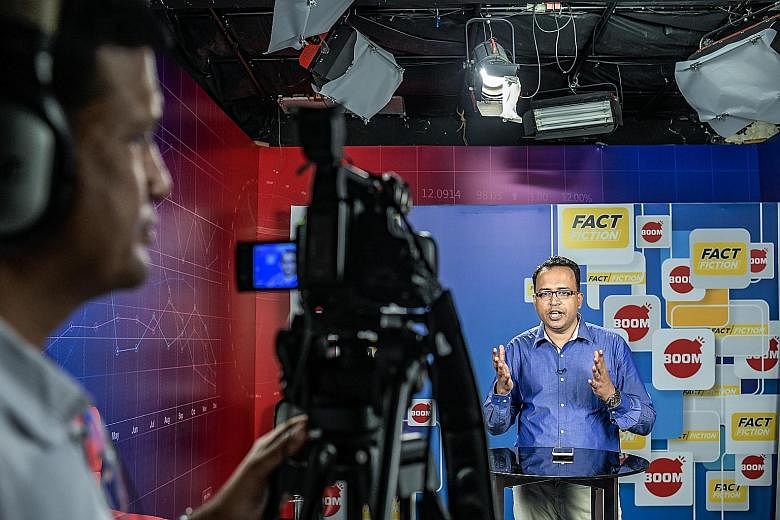MUMBAI • WhatsApp yesterday launched a service for Indians to check the veracity of information, in the messaging platform's latest attempt to combat fake news in India ahead of national elections.
WhatsApp said in a statement that it was working with local start-up Proto to classify messages sent to the service by users as true, false, misleading or disputed.
They will also build a database of such content to better understand misinformation, Reuters reported.
The move comes as WhatsApp, with more than 200 million users in India, battles criticism of its platform being used for the spread of misinformation, while social media companies across the board work to prevent the phenomenon, particularly during sensitive events such as elections.
The new service, dubbed Checkpoint Tipline, can receive messages in the form of images and video, as well as text in English and four regional languages, WhatsApp said.
WhatsApp owner Facebook said on Monday that it had deleted 712 accounts and 390 pages in India and Pakistan for "inauthentic behaviour", saying that many were linked to India's opposition Congress Party, and others related to Pakistan's military.
All the major Indian parties have sophisticated disinformation strategies, which include posting false and manipulated photos and videos, and coordinating posts across a network of paid acolytes and volunteers.
That has put Facebook, which has said it does not want to stifle free expression, in an awkward position.
For the past year, the company has relied on two independent organisations - first a local group called Boom and, more recently, the news agency Agence France-Presse - to fact-check a handful of posts in India every day, the New York Times reported.
In February, Facebook added five more organisations to the stable and expanded the number of languages covered to seven, up from just English initially.
The first phase of India's elections is set to begin on April 11, with final results expected on May 23.
Meanwhile, Taiwan plans to ban the video-streaming services of Chinese-owned technology companies, in the latest move by the island to counter the alleged spread of false information online and curb perceived efforts by Beijing to influence Taiwanese politics.
The decision would apply to services such as Baidu's iQiyi platform, which already operates in Taiwan, and fend off an anticipated market entrance from Tencent Video, the Financial Times said yesterday.

